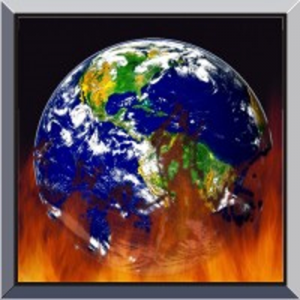 Three reports on climate change, the AAAS’s “What We Know”, the IPCC’s “Fifth Assessment Report” (AR5), and the “National Climate Assessment” (NCA) were recently released. The AAAS is a summary of the current science, AR5 is a global report, and NCA focuses on the effects in the US. Not surprisingly, all reports reached the same conclusions… climate change is real, it’s accelerating, and it will affect every person on the planet. But on the bright side, they also said there is still time to blunt the worst effects. You may not want to quit your job to go learn all the science necessary to understand these reports, but you probably also realize how important this issue is. This month we’ll give you links to all the reports (and some analysis for each), but more importantly, we’ll give you links to resources to help you understand climate change without hype or bias and make informed choices in your own life…
Three reports on climate change, the AAAS’s “What We Know”, the IPCC’s “Fifth Assessment Report” (AR5), and the “National Climate Assessment” (NCA) were recently released. The AAAS is a summary of the current science, AR5 is a global report, and NCA focuses on the effects in the US. Not surprisingly, all reports reached the same conclusions… climate change is real, it’s accelerating, and it will affect every person on the planet. But on the bright side, they also said there is still time to blunt the worst effects. You may not want to quit your job to go learn all the science necessary to understand these reports, but you probably also realize how important this issue is. This month we’ll give you links to all the reports (and some analysis for each), but more importantly, we’ll give you links to resources to help you understand climate change without hype or bias and make informed choices in your own life…

UPDATE 5/19/14- Here’s a link to Skeptical Science, a great debunking site with 176 chunks of BS listed as of today
The “What We Know” report differed from the other two, as it was a review of current science and not projections of the science’s conclusions. Widely praised for its content, the report was widely panned for a flat, scientific, unemotional presentation. The people who had issues with “What We Know” would likely have problems with the other two reports as well, the “Fifth Assessment Report” (AR5) from the Intergovernmental Panel on Climate Change (IPCC) and the “National Climate Assessment” (NCA) from the US Global Change Research Program. AR5 treats the issue from a global perspective, while the NCA focuses on the effects in the US. Neither focused on flashy graphics or infotainment. However, all three reports made the same point… while some effects of climate change are well-understood and others are more speculative, the effects will be pervasive. Here are links to each of the three reports, and a few other articles about each one…
AAAS “What We Know; The Reality, Risks, and Response to Climate Change”
- Suzanne Goldenberg, The Guardian, Climate change- World at risk of irreversible changes, scientists warn
- Phil Plait, Bad Astronomy, AAAS “What We Know” About Global Warming Campaign
- MIT Knight Science Journalism, Fed up with climate crackpots and contrarians, AAAS slams down on the table “What We Know ” report
IPCC “5th Assessment Report”
- Damian Carrington, The Guardian, IPCC climate change report: averting catastrophe is eminently affordable
- Alan Neuhauser, US News & World Report, After IPCC Report, What’s Next for Climate Groups
- Liverman and Glasmeier, The Atlantic, What Are the Economic Consequences of Climate Change?
US Global Change Research Program “National Climate Assessment”
- Chris Mooney, Moyers & Company, Seven Scary Facts About Global Warming Is Scorching the United States
- Suzanne Goldenberg, The Guardian, Climate change is clear and present danger, says landmark US report
- Phil Plait, Bad Astronomy, The Heat Is On: In the U.S., Climate Change Is Here and Now and the Future
- Office of the President, ”FACT SHEET: What Climate Change Means for Regions across America and Major Sectors of the Economy”
So those are the three latest reports on Climate Change. If you’re anything like us, you’ll probably still have problems understanding them. When a Climate Change Denier brings up a critique of something in one of the studies, how do any of us know if they have a point? We’re very proud of this article we did in 2011 in support of 350.org’s Moving Planet event. You’ll find three websites dedicated to Climate Change science and the debunking of spurious arguments. As much as possible, we tried to find sites that were reality-based, balanced and fair, and we think we did a pretty good job. Now please dig in to the nitty gritty and enjoy this blast from the past…
Science and History of Climate Change- Learn the science without the hype from either side
Posted on September 2, 2011 by tomdwyer
Is climate change real? Despite what FOX tells us, it seems so. “[The] conclusions have been reviewed and endorsed by the national science academies of every major nation from the United States to China, along with leading scientific societies and virtually every organization that could speak for a scientific consensus.” That’s a strong statement, but climate change deniers will tell you that consensus isn’t proof. Sadly, they’re right.
Science never proves anything; it only offers better theories of how things work and what we can expect. Climate change deals with complex, interrelated systems humans are only beginning to understand. While there may be genuine grounds for disagreement, unavoidable scientific doubt has been distorted into proof that the whole idea is wrong. But it’s not just the right-wing crazies that are guilty of hyperbole. Greenies have seized on the worst case climate scenarios to tell us that global warming inevitably leads to a runaway greenhouse effect that will destroy all life on earth.
So do you understand climate change yourself, or do you just take someone else’s word that it’s real? Do you know enough to explain climate change to your uncle who knows nothing about science, but believes Sean Hannity does? If a denier has doubts, where could he find unbiased information on the issue? If you don’t want to spend twelve more years in school learning everything you need to know to make a real evaluation, then Your Car Matters is here to help. This month, we want to tell you about three places you can go for the most unbiased information we could find.
The Discovery of Global Warming
The Discovery of Global Warming, (by Spencer Weart; sponsored by the American Institute of Physics and the Center for History of Physics), is our most highly recommended place to start. Weart has a book version of the project as well, but that’s just a fairly linear story of the history of global warming science. His website is much, much more. The Discovery of Global Warming is an exhaustively researched, incredibly detailed, hyperlinked and cross-referenced guide to the history and science of climate change. The site weaves together more than 30 parallel (and updated) essays, based on over 2400 sources. You can start anywhere, and follow the site down any path that catches your eye. You may choose to start with the History of Climate Change text version or maybe the Timeline, but the hyperlinks in each will take you to definitions, supporting documents, charts, and other explanations you’ll need to understand the issue. The full site is available as a free download (6Mb) for review at your leisure or distribution to that cranky uncle.
One of the links on Discovery of Global Warming takes you to RealClimate.org, “…a commentary site on climate science by working climate scientists for the interested public and journalists.” RealClimate is an excellent source for readers of all levels. It breaks information down into four categories…”For complete beginners”, “Those with some knowledge”, “Informed, but in need of more detail”, and “Informed, but seeking serious discussion of common contrarian talking points”. Some of the sources they cite are NASA, the National Academy of Science, Pew Center, and the IPCC
Climate Change- A Guide To The Perplexed
Our final recommendation is from New Scientist, and their special project called “Climate Change- A Guide To The Perplexed”. They start with an article on how one assesses scientific evidence, and then tackle some of the all-time favorite arguments made by climate change deniers “Antarctic cooling disproves global warming“, “Warming on Mars and Pluto proves global warming is caused by solar activity“, “Global warming stopped in 1988“, and many more.
Unless someone has spent their entire life studying climate change, there’s no way they can understand the issue. Even those few people who are experts truly only understand their small slice of the pie, and they rely on other experts on other slices for their understanding. We all have to take someone’s word for things we don’t understand. But no one should trust blindly, and it may be worse to trust lazily. These are some good ways to get educated on what may be (depending on who you trust) one of the most important issues ever to face our planet.
Buried in the Humor section of our website (what, you didn’t know we had one?) is a video called “How it all Ends“, in which the idea of risk analysis as it applies to climate change is explained by a geeky science teacher in a strange hat. Sometimes simple is better, though, as he gets across how to plan for a very large, but very uncertain, threat. Great fodder for dinner table conversation, or for seventh grade science classes.











